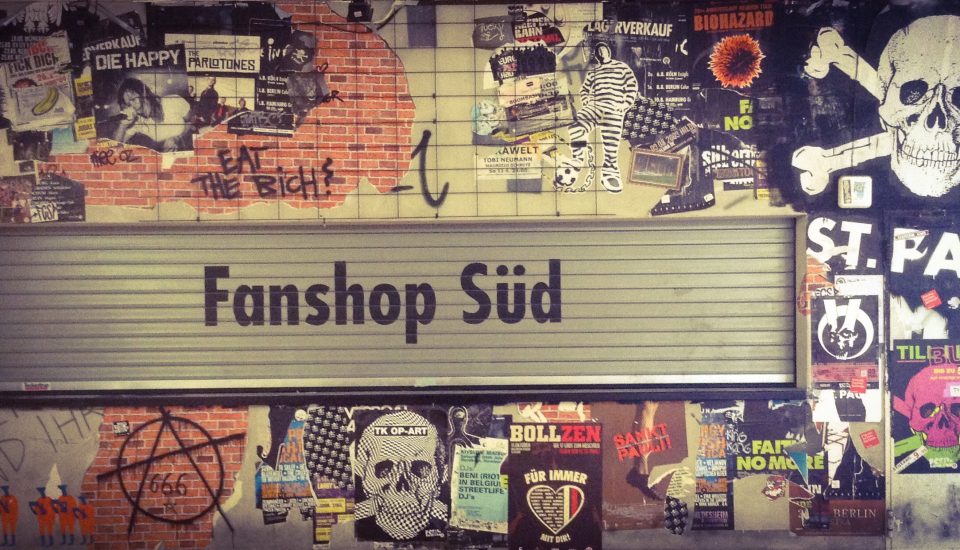Whom might come close to St Pauli elsewhere in Europe?
There is Livorno with its communist leanings and Celtic with its passionate defense of all things Palastine.
Many clubs these days take it upon themselves to encourage and inspire participation in all forms of football as part of strategic plans.
Fan engagement no longer begins and ends in the boardroom.
In these times of polarized social division its probably unthinkable that you would be able to find a club in the United Kingdom with a distinctive left wing subculture that encompasses music, football and politics.
But this is St Pauli FC – very very few professional football clubs have shouted from the rooftops how much they support marginalized communities like St Pauli do. None of the aforementioned are clubs imbued with alternative culture identities that are quite as strong as St Pauli.

A one time ‘punk’ club the Germans are now recognized as a symbol of tolerance and anti-establishment resistance. In fact, at times it feels that they are more a home for just about every marginalized community group in society than a football club.
FC Woke.
Walk down the Reeperbahn in Hamburg and you will no doubt see mention of The Beatles for it was here they made an early name. But you are not far from the beating heart of Hamburg’s anti-establishment identity club. The local football team, with its skull and crossbones regalia, is the most visible symbol of local attitude and they now play at the now modern Millerntor Stadium.

Founded in the 19th century it was not until the mid 1980’s that St Pauli transitioned into a ‘cult’ club.
Essentially the locality of the stadium near Hamburg’s Reeperbahn turned the team into a focal point for a ‘cult’ fan scene that was largely expressed via the skull and crossbones – the club’s own unofficial emblem.

These days things have expanded beyond the skull and crossbones as modern brand thinking has taken over.
A set of fundamental principles (club ethics) or ‘leitlinien’ underpins how the club is run. These ensure that the club’s influence transcends beyond the unpredictable world of Bundesliga 1, 2 and 3.

If you walk around the surrounds or even the interiors of the stadium some of the messages expressed are staggering. While most football stadiums are homes to adverts publicizing electronic goods or cars St Pauli’s home is more of disheveled café-cum-art space.

Even the boutique club shop is staffed by hipsters who sell gift items that range from indie band CD’s, to vegan friendly club motif’s.
Currently the clubs third shirt has the LBGT flag sewn into it.
The St Pauli club shop is more of a Fairtrade product mart than a club retail outlet.
Thanks to intelligent match-day policing, and a club tolerance of political messaging clashes between FCSP fans and more right leaning fans are seldom commonplace these days.

Modern day Bundesliga rivalry is often expressed by chants and choreographed Tifo displays rather than fists or outlandish political messaging.
St Pauli Ultras are still famously active in anti-fascist circles but the gentrification of the St Pauli area has forced the one-time resident subculture away. The Millerntor Stadium is now the destination for a new politically motivated fan incomer – ‘hipster’ fans, rather than Hamburg based punks or black flag waving anarchists.

It is all worth the visit though just for the color and alternative feel whatever your personal political motivations or expressions are – it’s unlikely you will find anything else like this elsewhere in football at least in Europe.

